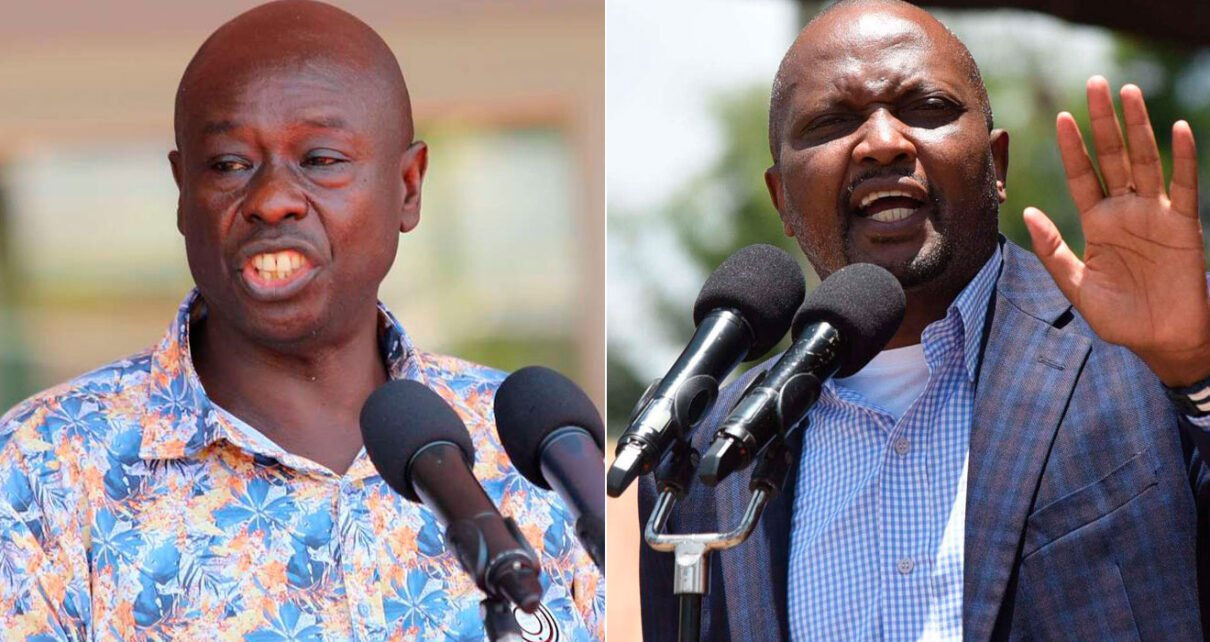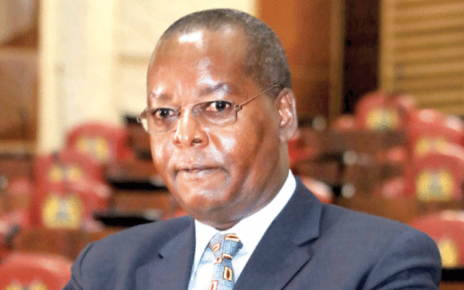Cabinet Secretary for Public Service, Performance, and Delivery Management, Moses Kuria, has emphasized the need for politicians to extend apologies to the entire Kenyan populace for past transgressions. Kuria’s call for reconciliation follows Deputy President Rigathi Gachagua’s recent apology to former First Lady Mama Ngina Kenyatta, urging her forgiveness for any disrespect she endured during the 2022 General Elections campaigns.
“To rid ourselves of the lingering specter of divisive politics from the past, it is imperative that we extend apologies to every Kenyan irrespective of their community. I extend my sincere and unreserved apology to any Kenyan from any community whom I may have wronged in the past,” stated Kuria.
Kuria’s statement appears directed at Deputy President Gachagua, with whom he has been engaged in a subtle power struggle within the Mt Kenya region.
In his apology, Gachagua, speaking during an interview with Kameme radio and TV, acknowledged Mama Ngina Kenyatta’s pivotal role as a maternal figure in the Mt Kenya region and expressed regret for involving her in the political arena during the previous elections.
“I deeply regret involving Mama Ngina Kenyatta in the political discourse of the last general elections. She holds a revered place in our hearts as our mother. Therefore, on behalf of our team, I seek forgiveness. I pledge to uphold respect for her and all individuals from our region,” expressed Gachagua.
He further emphasized the importance of unity among leaders within the Mt Kenya region and the nation at large, highlighting that cohesion is the cornerstone of their collective strength.
Kuria and Gachagua have had public disagreements in the past, notably concerning the government’s approach to addressing issues such as the resurgence of the illegal sect Mungiki and combating alcoholism.
Kuria advocated for a more nuanced approach, rejecting intimidation and violence as solutions, particularly concerning the youth from the Mt Kenya region. Conversely, Gachagua affirmed the government’s stance against the illegal activities of groups like Mungiki and urged young people to refrain from associating with them.
Moreover, Kuria criticized the government’s strategy, spearheaded by Gachagua, in combating alcoholism, asserting the necessity for an intellectual dimension to the approach. He highlighted systemic issues such as taxation and illicit ingredients contributing to the proliferation of illicit alcohol in the market.
In essence, both Kuria and Gachagua underscore the significance of reconciliation, unity, and strategic policymaking in fostering a harmonious and progressive society in Kenya.



